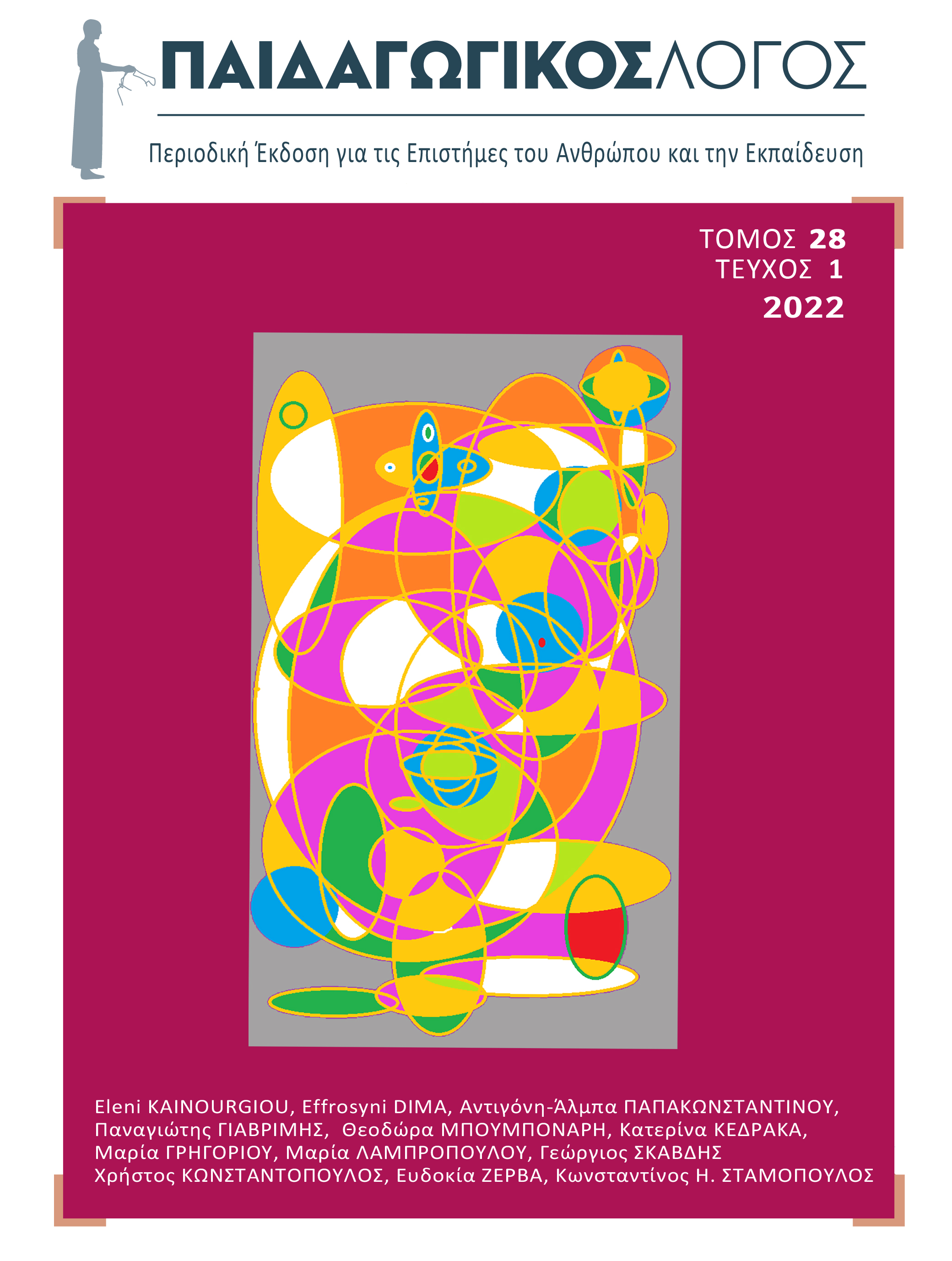Parental influence over secondary teachers’ grading

Abstract
The present study tries to understand the ways that parents use to affect secondary school teachers’ grading. The theoretical framework begins with the determination of teachers social role into school, which is perceived as a field of action, and concludes with the description and determination of parental involvement in secondary education. The analysis of twenty secondary teachers’ interviews, realized within focus groups formed according to their scientific specialization, reveals that parents influence teachers’ grading. According to participating teachers, parents intervene, exercise pressure or try with different ways to influence and ameliorate their children grades. The degree of the effective influence on teachers’ grades depends on multiple and complex factors concerning all implicants and appears to be different from case to case.
Article Details
- How to Cite
-
Παπακωνσταντίνου Α. Ά. (2022). Parental influence over secondary teachers’ grading. Pedagogikos Logos, 28(1), 33–56. https://doi.org/10.12681/plogos.30598
- Section
- Articles

This work is licensed under a Creative Commons Attribution-NonCommercial-NoDerivatives 4.0 International License.
Οι Συγγραφείς που δημοσιεύουν εργασίες τους σε αυτό το περιοδικό συμφωνούν στους παρακάτω όρους:
- Οι Συγγραφείς διατηρούν τα Πνευματικά Δικαιώματα και χορηγούν στο περιοδικό το δικαίωμα της πρώτης δημοσίευσης, ενώ ταυτόχρονα τα πνευματικά δικαιώματα της εργασίας προστατεύονται σύμφωνα με την χρήση άδειας που υιοθετεί ο «Παιδαγωγικός Λόγος - Περιοδική Έκδοση για τις Επιστήμες του Ανθρώπου και την Εκπαίδευση» : Αναφορά Δημιουργού – Μη Εμπορική Χρήση – Όχι Παράγωγα Έργα 4.0 (CC BY-NC-ND). Αυτή η άδεια επιτρέπει στους άλλους να έχουν πρόσβαση στο έργο και να το μοιράζονται με άλλους, εφόσον κάνουν αναφορά σε αυτό, ωστόσο δεν μπορούν να το αλλάξουν με κανένα τρόπο ούτε να το χρησιμοποιούν για εμπορική χρήση.
- Οι συγγραφείς μπορούν να συνάπτουν ξεχωριστές και πρόσθετες συμβάσεις και συμφωνίες για τη μη αποκλειστική διανομή της εργασίας, όπως δημοσιεύτηκε στο περιοδικό αυτό (π.χ. κατάθεση σε ένα ακαδημαϊκό καταθετήριο ή δημοσίευση σε ένα βιβλίο), με την προϋπόθεση της αναγνώρισης και την αναφοράς της πρώτης δημοσίευσης σε αυτό το περιοδικό.
- Το περιοδικό επιτρέπει και ενθαρρύνει τους συγγραφείς να καταθέτουν τις εργασίες τους μέσω διαδικτύου (π.χ. σε ένα ακαδημαϊκό καταθετήριο ή στους προσωπικές τους ιστοσελίδες) πριν και μετά από τις διαδικασίες της δημοσίευσης, καθώς αυτό μπορεί να οδηγήσει σε παραγωγική ανταλλαγή ιδεών και σκέψεων, καθώς επίσης και σε γρηγορότερη και μεγαλύτερη χρήση και ευρετηρίαση της δημοσιευμένης εργασίας


